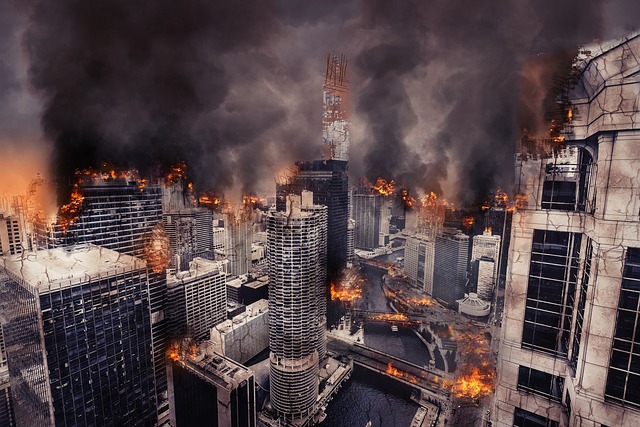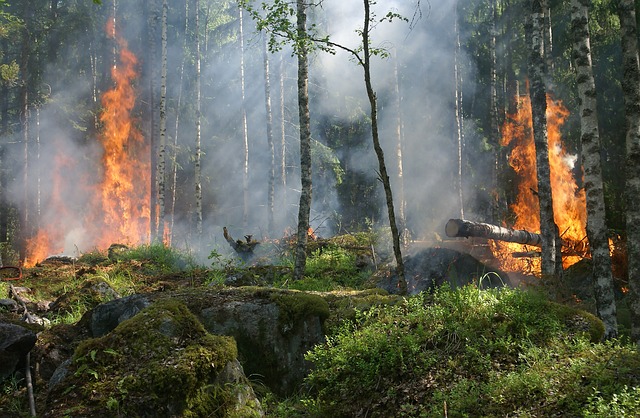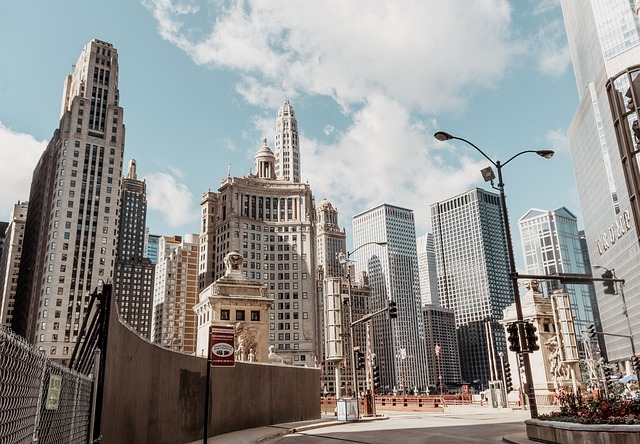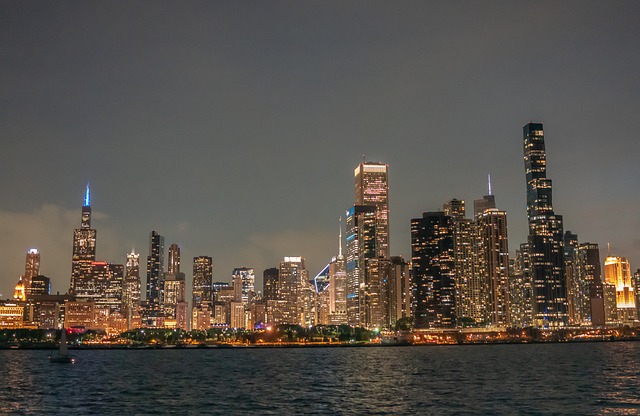Chicago's real estate market presents opportunities for investors, but it also has challenges, including high taxation and zoning laws. Revitalized neighborhoods offer attractive deals, and its diverse population ensures consistent market activity. Selling a fire-damaged home requires careful navigation, including assessing repairs, setting competitive prices, being transparent about damage, and using professional staging. Legal and insurance challenges include adhering to building codes and obtaining necessary permits for renovation. To succeed in the competitive market, investors should consider innovative transformations like modern lofts or duplexes, focusing on significant returns post-repairs through strategic marketing.
Chicago’s real estate market is a dynamic, ever-evolving landscape that presents both opportunities and challenges for investors. This article delves into the trends and strategies that define the current scene, offering insights tailored specifically for those looking to navigate the Windy City’s unique real estate environment. From understanding market dynamics and legal considerations to mastering property flipping techniques, we explore practical steps for success, including effective approaches to selling a house with fire damage in Chicago.
- Understanding Chicago's Real Estate Market: Trends and Opportunities for Investors
- Navigating the Process of Selling a House with Fire Damage in Chicago
- Legal and Insurance Considerations for Real Estate Investors in Chicago
- Strategies for Successful Property Flipping in the Windy City
Understanding Chicago's Real Estate Market: Trends and Opportunities for Investors

Chicago’s real estate market is dynamic and diverse, presenting investors with both challenges and lucrative opportunities. Understanding the current trends is key to navigating this competitive space. Over the past few years, Chicago has witnessed a steady rise in property values, particularly in its affluent neighborhoods. This growth is attributed to various factors such as the city’s thriving economy, robust job market, and improving infrastructure. However, investors should also be aware of local challenges, like high taxation and stringent zoning laws.
When it comes to specific opportunities, investing in areas that have experienced recent revitalisation is a smart move. For instance, properties in neighbourhoods recovering from fire damage due to blight or renovation projects can offer attractive deals. Investors who can identify these areas early may benefit from the subsequent price appreciation as these regions undergo transformation. Additionally, Chicago’s diverse population provides a stable demand for housing, ensuring consistent market activity throughout the year.
Navigating the Process of Selling a House with Fire Damage in Chicago

Selling a house with fire damage in Chicago can be a complex process, but it’s definitely doable. The first step is to assess the extent of the damage and get accurate estimates for repairs from licensed contractors. This information will be crucial when determining a listing price that accurately reflects the current state of the property while remaining competitive in the local market. It’s important to remember that buyers in Chicago are often well-versed in real estate, so transparency about the fire damage is key to fostering trust and avoiding potential delays or disputes during the sales process.
Once repairs are completed, staging can play a significant role in attracting buyers. A professionally staged home can help minimize the psychological impact of the fire damage and highlight the property’s potential. In Chicago, where real estate is competitive, a well-presented home could make all the difference between a quick sale and a prolonged market stay. Additionally, working with a knowledgeable real estate agent familiar with selling properties affected by fire damage can provide invaluable guidance throughout the process.
Legal and Insurance Considerations for Real Estate Investors in Chicago

Real estate investors in Chicago, especially those looking to flip properties or buy damaged homes for renovation, must be aware of crucial legal and insurance considerations. One common challenge they face is navigating the process of selling a house with fire damage in Chicago. Fire-damaged properties often require specialized handling due to potential safety hazards and legal complexities.
Investors should ensure they comply with local building codes and regulations regarding structural repairs and hazard mitigation, especially when marketing these properties to buyers. Additionally, adequate insurance coverage is essential. Investors must review their policies to understand what’s covered in case of fire damage, including liability for any potential risks associated with the property’s history. This includes protecting themselves against legal issues that may arise from selling a house with fire damage, ensuring they provide accurate disclosures, and obtaining necessary permits for renovation projects.
Strategies for Successful Property Flipping in the Windy City

In the competitive Chicago real estate market, successful property flipping demands strategic thinking and adaptability. Investors should look beyond traditional renovation paths, especially when dealing with a house that has experienced fire damage in Chicago. Instead of simply repairing visible wounds, consider transforming the space into something unique that caters to the city’s diverse population. For instance, converting an older home into modern lofts or duplexes can appeal to young professionals and students.
Focus on maximizing square footage and incorporating trendy design elements while addressing any structural issues left by fire damage. With Chicago’s robust real estate market, flippers who invest in properties with potential for significant returns after repairs stand to make a substantial profit. Remember that effective marketing is key; highlighting the flipped property’s distinctive features and emphasizing its appeal to local buyers can drive interest and sell your renovated home quickly, even if it had previous fire damage.
Chicago’s real estate market presents unique opportunities, from lucrative flipping scenarios to strategic long-term investments. Understanding the local trends and navigating key considerations like fire damage repairs (a common challenge in the Windy City) is essential for success. By staying informed about legal and insurance aspects, investors can capitalize on the market’s strengths while mitigating risks associated with selling a house with fire damage in Chicago. Adopting effective flipping strategies will enable savvy investors to turn properties around and achieve substantial returns.






